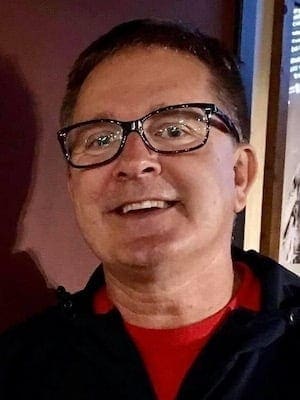I first met John Irving’s writings in Mali, West Africa. My reading buddy, Joanne, had a wonderful library and a beautiful heart, and she became my literary oasis in our Saharan desert country.
One day she handed me a ragged copy of “A Prayer for Owen Meany” and said, “There aren’t many missionaries I’d recommend this to, but I think you’ll like it.”
She was right! I became a fan of all Irving’s works. Irving helps me find the real in the ridiculous, meaning in the meaningless and hope in the hopeless.
His stories remind me of times I lived at the Jeff Street Baptist Center across the street from the Clarksdale Housing Projects in Louisville, Ky.
One morning I walked out the front doors of the center and turned down Jefferson Street toward the Ohio River. There, huddled in a circle beside the wall of our building, was a group of worn, ragged homeless men.
I knelt down with them and said “hello.” One of the men smiled a toothless smile at me, reached into his coat, pulled out a bottle of “Wild Irish Rose,” took a swig and passed it to me.
“Here,” he said. “Have a drink.”
It was truly a John Irving moment. Here I was offering my alcoholic friend a “hello” and he was offering his ministerial friend a drink.
As I reflected upon his offering, I realized that he was not merely offering me a drink. In his condition and from his perspective, he was offering me the thing that was most important to him.
Since that encounter, I have often asked myself whether I offer the things that are most important to me to others, especially to the smallest and most forgotten people in the world.
We still live in a world that is tearing apart – a world where people are taking and taking until there is a wide gap between the few who are rich and the many who are poor, a world where individual good proudly trumps the common good and sows despair, and a world where people praise the powerful and show kindness only to those who can do something for them.
Yet, when I reflect upon this homeless alcoholic’s offering, I find hope. Not in this man’s addiction, of course, but in the extravagant gesture of freely offering that which was most precious to him.
I am still drinking deeply from that moment in my life today. What would it mean to the world if we, as Christians, gave it the things that mean most to us?
Perhaps we might begin to stitch our world back together again; to sell our goods and belongings and divide them on the basis of need; to unite with singleness of purpose, gathering at the church every day and eating the common meal with joy and humility; and to show overflowing kindness toward everybody.
Let’s try it!
Trevor Barton teaches second grade and is a member of First Baptist Church in Greenville, S.C.
A fourth grade public school teacher and member of First Baptist Church in Greenville, South Carolina.

